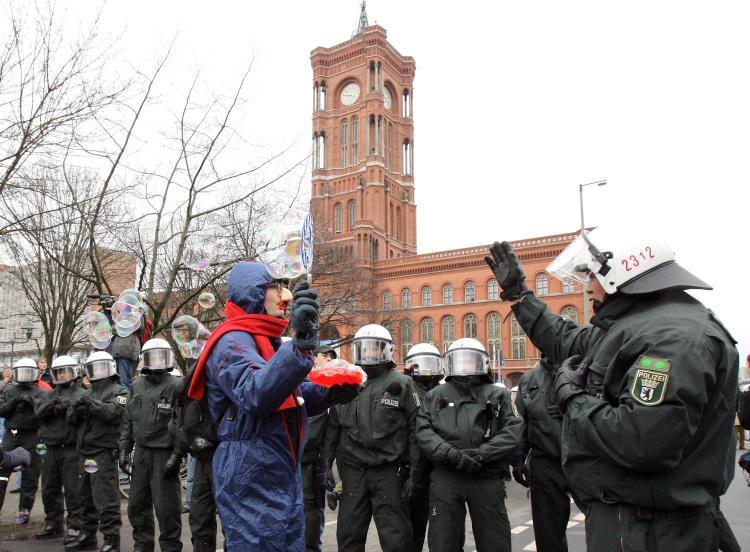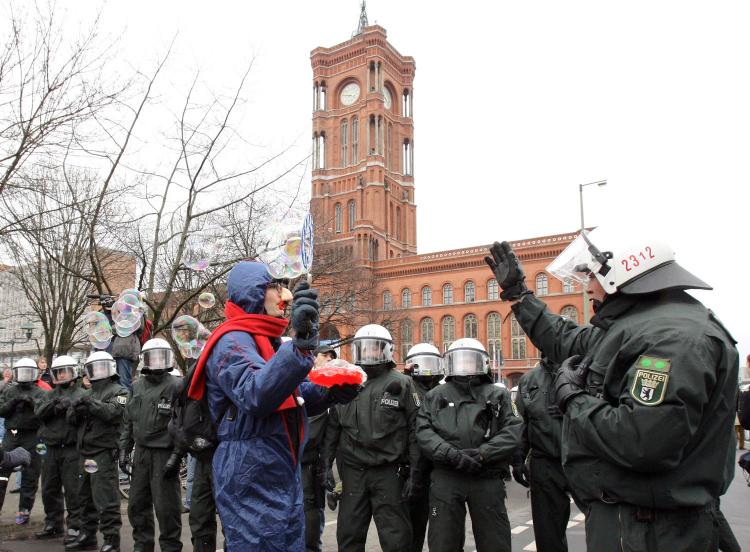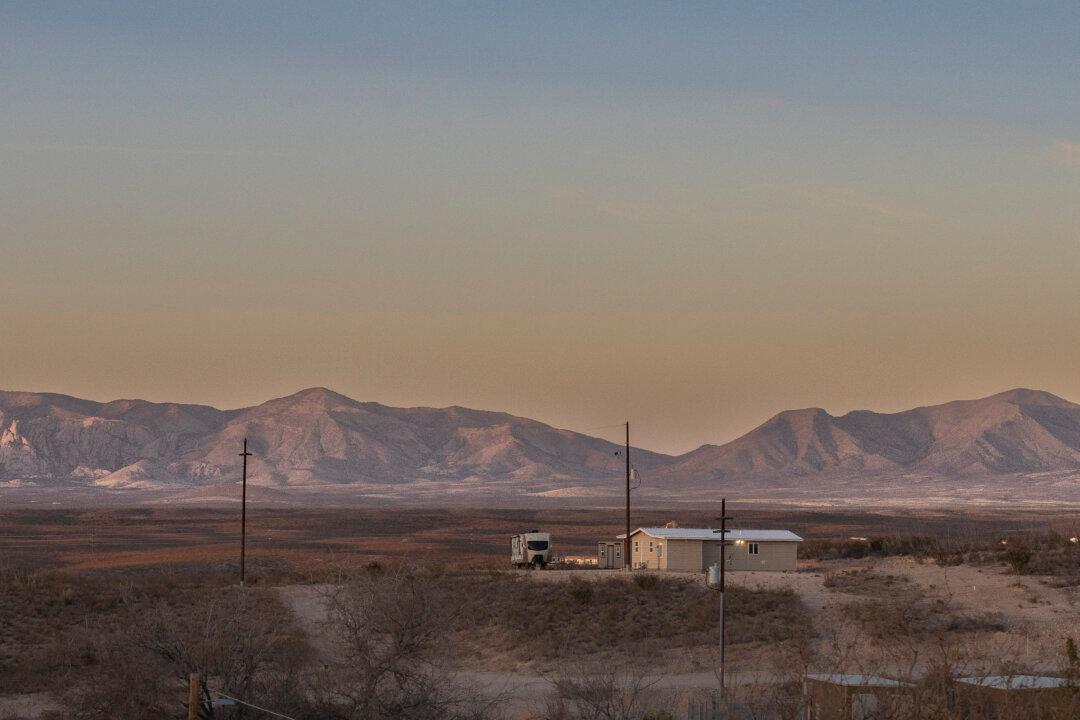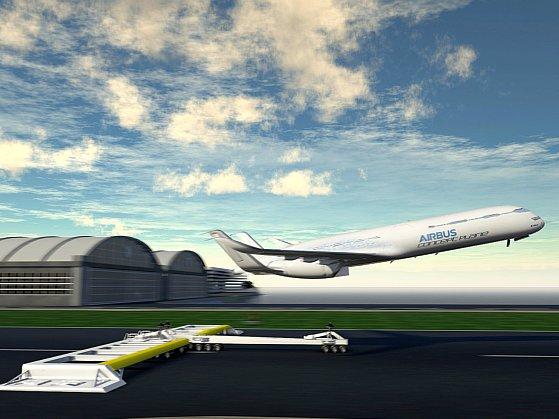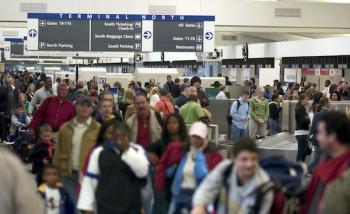Thousands of protesters took to the streets in European capitals last week to speak out before the upcoming G20 meeting in London on April 2. Issues ranging from anti-capitalism and the current economic crisis to anti-war and climate change were the focus of these protests.
Close to 35,000 protesters participated in the “Put People First” march in London last Saturday kicking off a series of planned protests by a coalition of labor unions, religious organizations, environmentalists, aid agencies, and other civil organizations.
While the Metropolitan police in London gear up for major events during this week, the protests on Saturday went without significant problems. Tthere was only one arrest for disorderly behavior as reported by the police.
Media reports are alert to the potential protests escalating to violence, crimes, looting, or street riots by anarchist or anti-globalization groups. Police have responded that that they are fully aware of such possibilities, and they will deal any attempt in committing or inciting criminal activities swiftly and on the spot.
“Capitalism isn’t’ working,” and “Jobs not war,” were some of the slogans in London.
Under heavy police forces, protesters in the German capital Berlin held similar activities when 15,000 people went out on the street under the motto: “We won’t pay for your crisis” on Saturday. The German’s banking capital Frankfurt saw a 10,000 people march against the financial crisis and those responsible for it.
Participants in the Berlin protests said that they felt helpless before issues such as poverty, mass unemployment, the devastation of the natural environment, and other current social phenomena.
Public and governments agencies, hospitals, schools, and public transits were struck by hundreds of nationwide protests in France on March 19. The protests were targeted against French president Nicolas Sarkozy and his policy on the financial crisis. Eighty-five thousand marched under the slogan “We will not pay for their crisis” in Paris alone, reported the police.
At dusk the protests in the French capital turned into unrest, with violent demonstrators dominated by anarchist sentiments and displaying revolutionary slogans. They had be dispersed with tear gas and riot police as the gathering crowds smashed onto store windows and vandalized public property.
There were hundreds of arrests as police was attacked by bottles, metal and other objects. Many policemen were also injured as a result.
The protests in France were also influenced by the current economic state of the country. Despite union demands for a stop in the cutting of jobs in the public sector and an increase in the minimum wage, the number of unemployed reached a record high of two million. The number is expected to increase by one more million by the end of the year as reported by national statistics.
The police in the Austrian capitalof Vienna said that around 6,500 protesters marched with slogans like “Capitalism Kills” and “Make The Rich Pay.”
Along with hundreds of other official representatives, the G20 summit on Thursday this week, will gather state leaders and financial executives of developed and emerging economies, along with other non-G20 members, to discuss the current economic crisis and look for potential solutions.
U.S President Obama is also scheduled to attend the summit, his first major wide scale international meeting.
Close to 35,000 protesters participated in the “Put People First” march in London last Saturday kicking off a series of planned protests by a coalition of labor unions, religious organizations, environmentalists, aid agencies, and other civil organizations.
While the Metropolitan police in London gear up for major events during this week, the protests on Saturday went without significant problems. Tthere was only one arrest for disorderly behavior as reported by the police.
Media reports are alert to the potential protests escalating to violence, crimes, looting, or street riots by anarchist or anti-globalization groups. Police have responded that that they are fully aware of such possibilities, and they will deal any attempt in committing or inciting criminal activities swiftly and on the spot.
“Capitalism isn’t’ working,” and “Jobs not war,” were some of the slogans in London.
Under heavy police forces, protesters in the German capital Berlin held similar activities when 15,000 people went out on the street under the motto: “We won’t pay for your crisis” on Saturday. The German’s banking capital Frankfurt saw a 10,000 people march against the financial crisis and those responsible for it.
Participants in the Berlin protests said that they felt helpless before issues such as poverty, mass unemployment, the devastation of the natural environment, and other current social phenomena.
Public and governments agencies, hospitals, schools, and public transits were struck by hundreds of nationwide protests in France on March 19. The protests were targeted against French president Nicolas Sarkozy and his policy on the financial crisis. Eighty-five thousand marched under the slogan “We will not pay for their crisis” in Paris alone, reported the police.
At dusk the protests in the French capital turned into unrest, with violent demonstrators dominated by anarchist sentiments and displaying revolutionary slogans. They had be dispersed with tear gas and riot police as the gathering crowds smashed onto store windows and vandalized public property.
There were hundreds of arrests as police was attacked by bottles, metal and other objects. Many policemen were also injured as a result.
The protests in France were also influenced by the current economic state of the country. Despite union demands for a stop in the cutting of jobs in the public sector and an increase in the minimum wage, the number of unemployed reached a record high of two million. The number is expected to increase by one more million by the end of the year as reported by national statistics.
The police in the Austrian capitalof Vienna said that around 6,500 protesters marched with slogans like “Capitalism Kills” and “Make The Rich Pay.”
Along with hundreds of other official representatives, the G20 summit on Thursday this week, will gather state leaders and financial executives of developed and emerging economies, along with other non-G20 members, to discuss the current economic crisis and look for potential solutions.
U.S President Obama is also scheduled to attend the summit, his first major wide scale international meeting.
